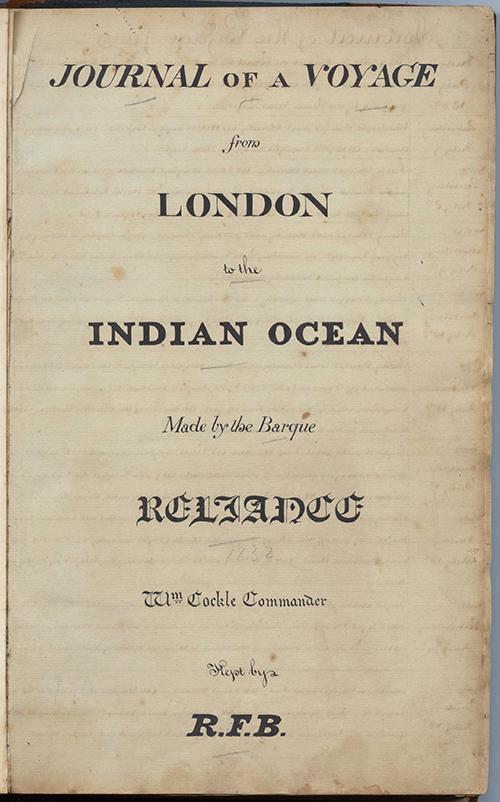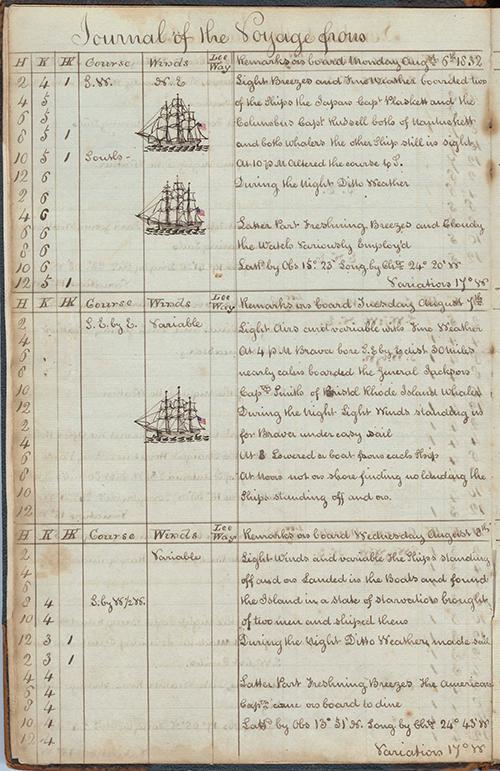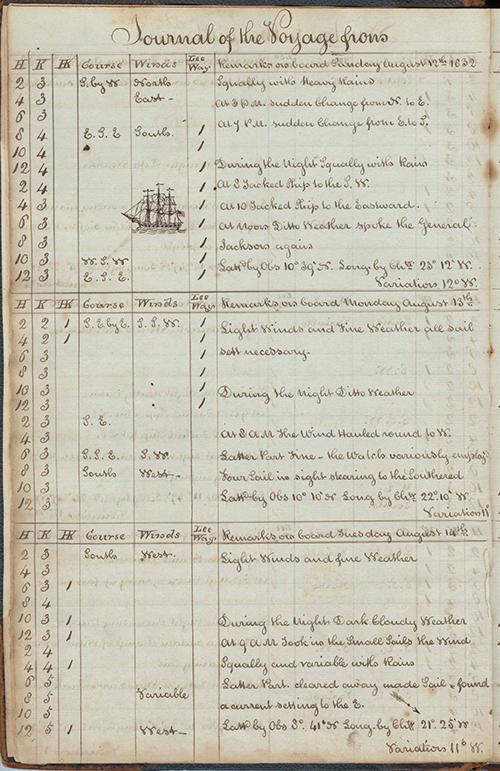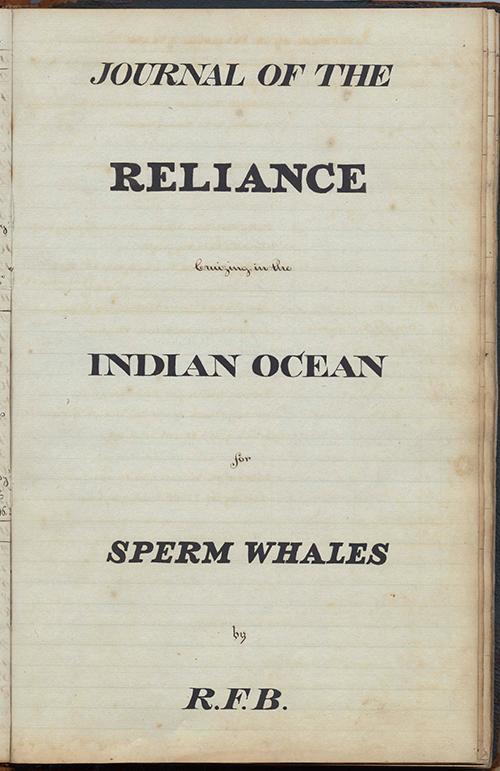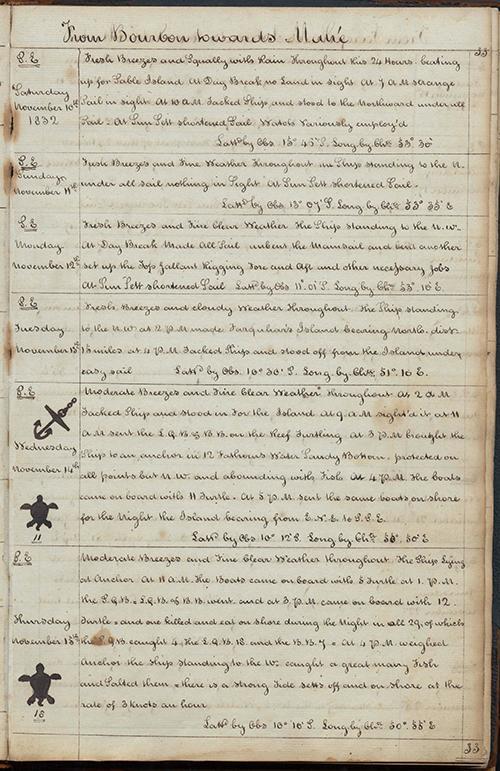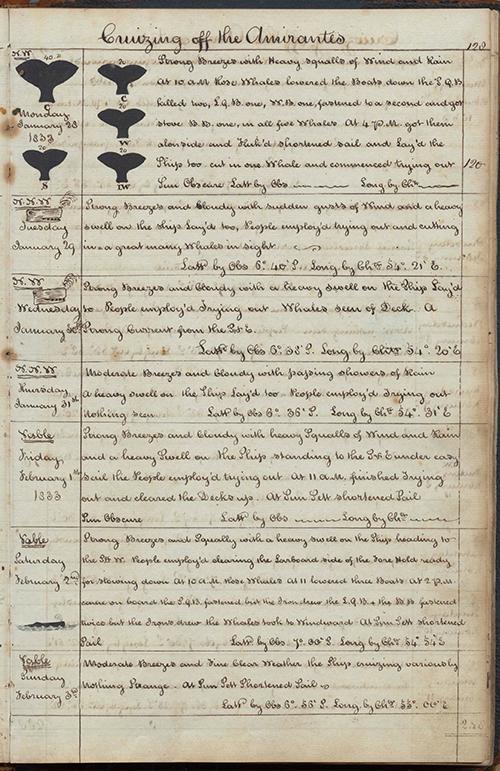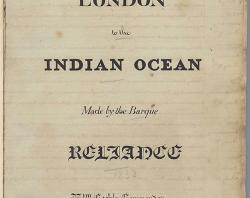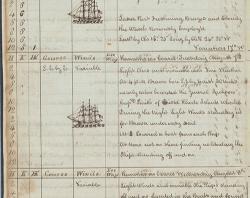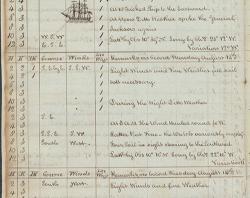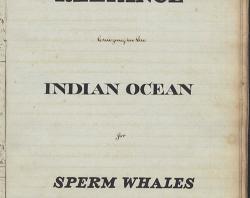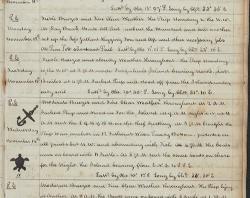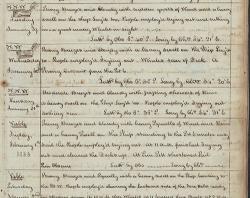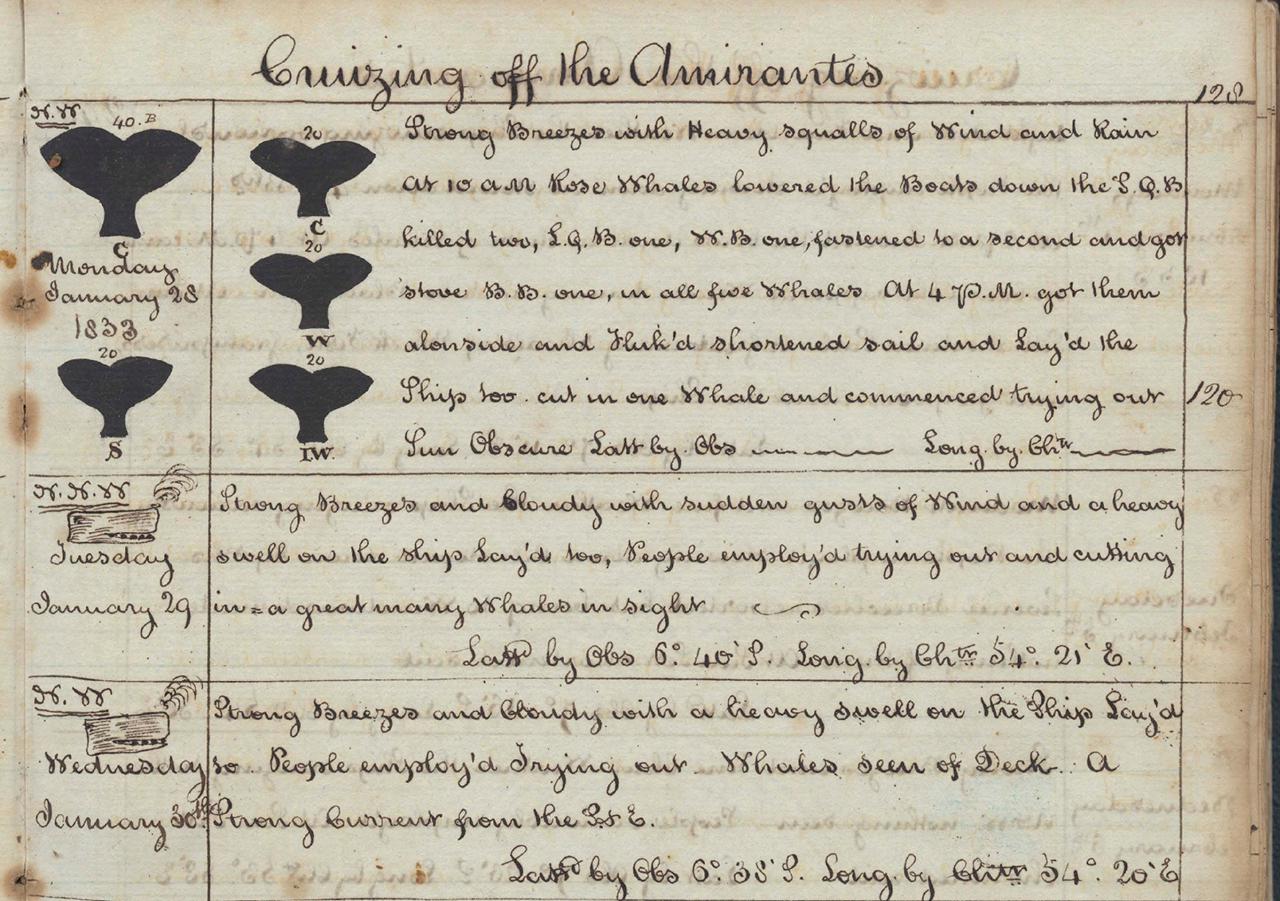
Whaling Voyage Journal from 1830s - a significant find
Making treasures from our collection accessible online
We contacted the professor who then passed on the link to the journal to a colleague - Mr Dale Chatwin - who is the administrator of the British Southern Whale Fishery website and the creator of its Voyage and Crew List datasets.
Mr Chatwin, a whaling historian, was amazed with what he saw. He kindly provided us with some wonderful observations into the uniqueness and historical importance of Burton’s whaling journal.
“The whaling voyage is interesting if only because it is the only known manuscript record of a British whaling voyage in the western Indian Ocean. There are only about 60 known logs / journals still in existence from over 2550 British Southern Whale Fishery voyages.
The narrative, unlike many whaling logs is so succinct and easy to read; well-illustrated with whales, turtles, boats, lovely drawings of ships and flags and even a flag at half-mast when recording the death of a crewman. The profiles of islands are also excellent and show real skill - developing skill in drawing profiles was a requirement for navy midshipman to master, not a surgeon!”
The journal was purchased by the library, together with the Friends of the State Library of South Australia, in 1997. While we were aware of the significance of the journal at the time, Mr Chatwin’s insights reveal just how important it is.
“The real treasure is in the material at the rear of the logs. The Charts and Descriptions of the Islands visited by the Reliance are absolutely first class (as good or better than the descriptions in [sic] J. W. Norie or the Oriental Navigator and Burton also includes some statistical analysis of the voyage of a type I've never seen before including a series of diagrams on how to stow the oil in the ship. He even includes as far (as I can tell) unique month by month - year by year - analysis of where the vessel cruised and its success. Never seen anything like it. This is some twenty years before real statistical analysis / charting techniques were developed. Very ground-breaking.”
“To be honest I am quite literally astounded at the quality of the Journal. In terms of the detail and quality of analysis and description I have to say it is absolutely right up there with the best surviving American whaling logs. It's another example of the benefit of mandating the taking of skilled / trained observers (i.e. surgeons) on board British whaling vessels. One must also remember this voyage is contemporary to the “Voyage of the Beagle” and visits islands and places rarely visited by the British.”
What this shows is the wonderful collaboration that can take place when an academic researcher’s simple suggestion can allow our librarians, archivists, and reformatting teams to come together and enhance not only our collection data, but also the online access to the journal.
Thank you Mr Chatwin for sharing your feedback with us, and we agree, Burton’s diary is indeed a ‘Treasure of the State Library of South Australia’.
Written by Tracey Parnis, Communication Project Officer and Laura Wolfe, Digital Engagement Coordinator.
